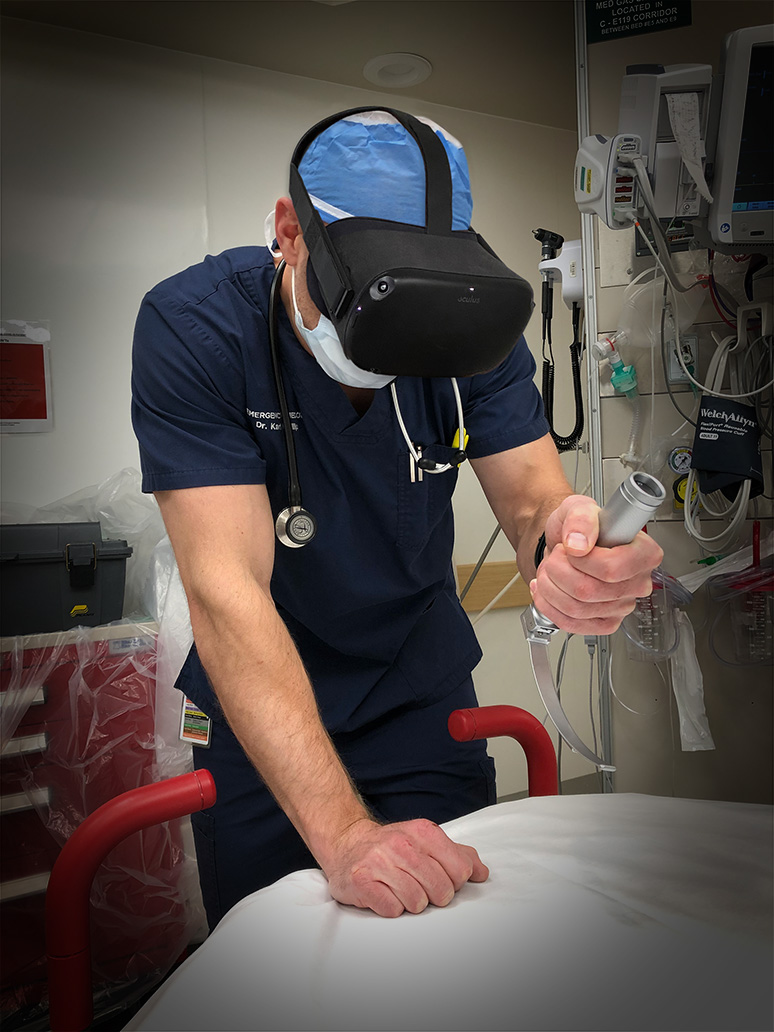How can doctors keep patients alive without the opportunity to practice medical skills? When a patient’s airway is compromised, the brain and other vital organs are unable to receive oxygen often leading to death. To keep the patient breathing during this extremely traumatic time, a physician must place a tube in their mouth and down their throat to keep the body and brain’s oxygen readily available. This procedure, called ‘intubation,’ is a vital skill to help critically unwell patients. In training, learners do not have enough time to practice such skills while fulfilling their clinical duties, impacting their ability to act in dire situations. In addition, current plastic mannequins used for practice are unrealistic, and are difficult to translate clinically. Without more realistic options for training, intubation practice can only be on patients who are near death – this is unacceptable. There is an intense need to develop alternative strategies that are readily available to help training doctors become experts in intubation.
VITAL XR is focused on creating the best simulated learning environment and platform for medical training. Our work bridges a gap between real-world medical challenges and technologies like virtual and augmented reality that can extend the capabilities of critical care training scenarios. This hybrid platform is intended to maximize practice opportunities for medical staff by reinforcing techniques and learning with a safe, simulated, yet realistic approach. Flesh, muscle, and bone feel real because of 3D scanning, printing, and casting in life-like materials. Intubation has become a default event in COVID 19 cases. A difficult procedure, our platform aims to set up training simulations with ultra-realistic physical and digital components using artificial intelligence trained by expert practitioners to achieve deeper learning. Real-time guidance and correction via audio visual aids as well as tactile feedback will provide results driven simulation and practice opportunities. In critical care situations, when they are most desperately needed, the skills learned, refined, and practiced can be applied with expediency and confidence.

